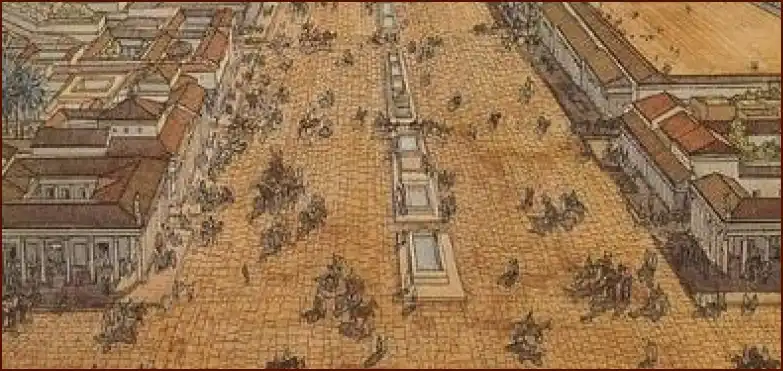The incredible flowering of literature and science in the Hellenistic period would not have been possible without one crucial ingredient: royal patronage. The kings who inherited the fragmented empire of Alexander the Great, most notably the Ptolemies in Egypt and the Attalids in Pergamon, used culture as a tool of statecraft. By lavishly funding libraries, research institutions, and individual artists, they competed for prestige and legitimized their rule over their new, multi-ethnic kingdoms.
Table of Contents
This system of patronage fundamentally shaped the kind of literature that was produced. Writers were no longer primarily composing for a citizen audience at public festivals, but for a highly educated court and a monarch who was their employer. This new relationship between artist and patron led to a more scholarly, international, and often politically nuanced body of work.
👑 The Ptolemies and the Alexandrian Model
The most influential patrons were the Ptolemaic dynasty in Egypt. They established the Library and Mouseion in Alexandria, creating an institutional framework for cultural production that became the envy of the ancient world. They offered salaries, tax exemptions, and free lodging to scholars and poets, attracting the best minds from across the Greek-speaking world to their capital.
This patronage had several direct effects on literature:
- A Focus on Scholarship: The proximity to the Library encouraged a learned, allusive style of writing, as poets had unparalleled access to texts.
- Court-Centered Poetry: Much of the poetry from this period was composed for the court. Poets like Callimachus and Theocritus wrote hymns and panegyrics that celebrated the ruling monarchs, often comparing them to gods and heroes.
- An International Community: Patronage brought together writers from different parts of the Greek world, breaking down the regionalism of the Classical period and fostering a more cosmopolitan literary culture.
🏛️ Competition Between Cultural Centers
The success of the Alexandrian model sparked a cultural arms race among the other Hellenistic kingdoms. The Attalid dynasty in Pergamon (modern-day Turkey) sought to challenge Alexandria’s dominance by creating their own magnificent library. According to ancient sources, the Library of Pergamon grew so large that a jealous Ptolemy V placed an embargo on the export of papyrus from Egypt to stifle its growth. This famously led to the Pergamenes perfecting the use of animal skins as a writing material, which became known as *pergamena charta*, the origin of our word “parchment.”
This rivalry between kings was a major driver of literary and scholarly production. Monarchs vied to attract the most famous poets and scholars to their courts, creating a competitive environment that fostered innovation. The result was an era where literature was not just an art form, but a powerful symbol of royal power and cultural supremacy.
More Topics
- How Philosophy Influenced Hellenistic Writing
- How to Understand the Hellenistic Book Roll
- How to Read Hellenistic Didactic Poetry
- How Literary Rivalry Shaped Hellenistic Poetry
- How to Appreciate Hellenistic Women Poets
- How Scholarship Became Literature in the Hellenistic Era
- How to Experience Hellenistic Mime and Popular Entertainment

